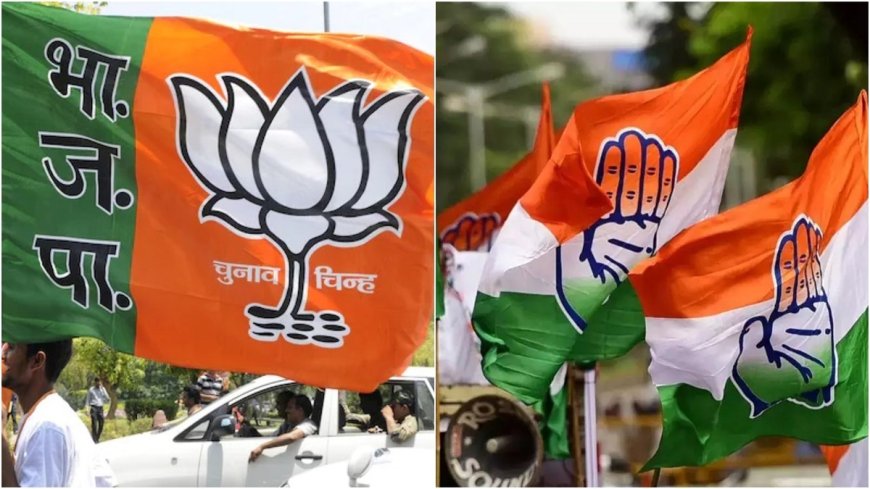Rajasthan Erupts in Political Firestorm on 50th Anniversary of the Emergency
On the 50th anniversary of the Emergency, BJP and Congress reignite political tensions in Rajasthan, debating the legacy of democracy and civil liberties.

Jaipur, June 26, 2025 — The 50th anniversary of the 1975 Emergency has reignited one of India’s most divisive political debates, as the ruling Bharatiya Janata Party (BJP) and opposition parties in Rajasthan clashed fiercely over its legacy. What began as commemorative events across the state quickly turned into a political battleground, reflecting a broader national tension around historical narratives and democratic values.
The Emergency: A Historic Flashpoint
Declared on June 25, 1975, by then-Prime Minister Indira Gandhi, the Emergency suspended civil liberties, censored the press, and authorized mass arrests of political opponents. For 21 months, India functioned under a state of constitutional autocracy — a chapter often invoked in today’s political discourse.
The BJP, which traces its ideological roots to opposition against the Emergency, marked the occasion with memorials and statements denouncing what it calls “the darkest period in Indian democracy.”
“Those who imposed the Emergency still haven’t apologized to the people of India,” said BJP State President C.P. Joshi during a rally in Jaipur. “Today, we are here not just to remember, but to reaffirm our commitment to constitutional values.”
For more on the historical impact of the Emergency, The Hindu offers a deep dive into its socio-political effects.
Opposition Strikes Back: Congress and Allies Push for Nuance
The Indian National Congress, led in Rajasthan by Govind Singh Dotasra, responded sharply. “The BJP is using selective history for political mileage,” Dotasra said at a press conference. “Yes, the Emergency was a mistake. But let’s also talk about the rise in custodial deaths, media intimidation, and surveillance today. You can’t weaponize history while ignoring the present.”
He further accused the BJP of undermining constitutional institutions and centralizing power — a critique echoed by other opposition leaders including Ashok Gehlot, who made a rare appearance in a panel discussion at Rajasthan University.
“If we are to learn from the past, we must be honest about the present,” Gehlot emphasized.
This ideological rift has split the political atmosphere in Rajasthan, a state often considered a bellwether for national sentiment. The Congress has announced a week-long series of dialogues titled "Democracy Then and Now" across major cities including Jodhpur, Udaipur, and Kota.
For historical context and analysis, PRS Legislative Research offers a detailed timeline of events during the Emergency.
Youth Engagement and Academic Discourse
Interestingly, the Emergency’s anniversary is resonating with the younger generation. Universities across Rajasthan have organized panel discussions, debates, and social media campaigns to explore questions of democracy, dissent, and civil rights.
At Jawahar Kala Kendra, students gathered to screen documentaries like "21 Months of Darkness" followed by an open mic session where many compared today’s political climate with that of the mid-70s.
This renewed interest has prompted national publications like Scroll.in and The Wire to release retrospectives and commentary, placing Rajasthan’s political clash in the context of a broader national reckoning with authoritarianism.
BJP’s Narrative: A National Refrain
The BJP’s strategy mirrors its nationwide campaign. On Wednesday, Prime Minister Narendra Modi led the 48th PRAGATI meeting and later reflected on the Emergency, calling it “a stain on our constitutional legacy.”
This narrative is deeply embedded in BJP’s political brand, and Rajasthan — where elections are due next year — offers fertile ground for testing its electoral potency.
A senior BJP strategist, speaking anonymously, noted: “People remember 1975, but more importantly, they see parallels in the Congress’s mindset even today. That’s our pitch.”
A detailed overview of BJP’s current nationwide political strategy can be found on India Today’s political insights portal.
Implications for the 2025 State Elections
With assembly elections scheduled for late 2025, both parties are using the Emergency narrative to shape public memory and voter sentiment. Political analysts believe that invoking historical trauma may resonate with older voters, while younger citizens are more concerned with issues of employment, education, and free speech.
“The Emergency is a prism through which we’re seeing a much larger ideological war unfold,” said Prof. Reema Mehta, a political scientist at Maharaja Ganga Singh University, Bikaner.
This intensification of rhetoric may polarize public opinion, but it’s also sharpening democratic engagement in one of India’s most politically aware states.
For real-time political polling and sentiment analysis, CSDS Lokniti remains a trusted resource.
Conclusion: A Moment for Democratic Reflection
As Rajasthan marks 50 years since the Emergency, it’s clear this is more than a remembrance — it's a live debate over India’s democratic trajectory. The BJP and Congress are framing the past to influence the present, making the Emergency not just a historical event but a potent electoral tool.
Whether this moment leads to more informed political participation or deepens ideological divides remains to be seen. What’s certain is that the conversation about India’s democratic soul — and how we honor or distort it — is far from over.














